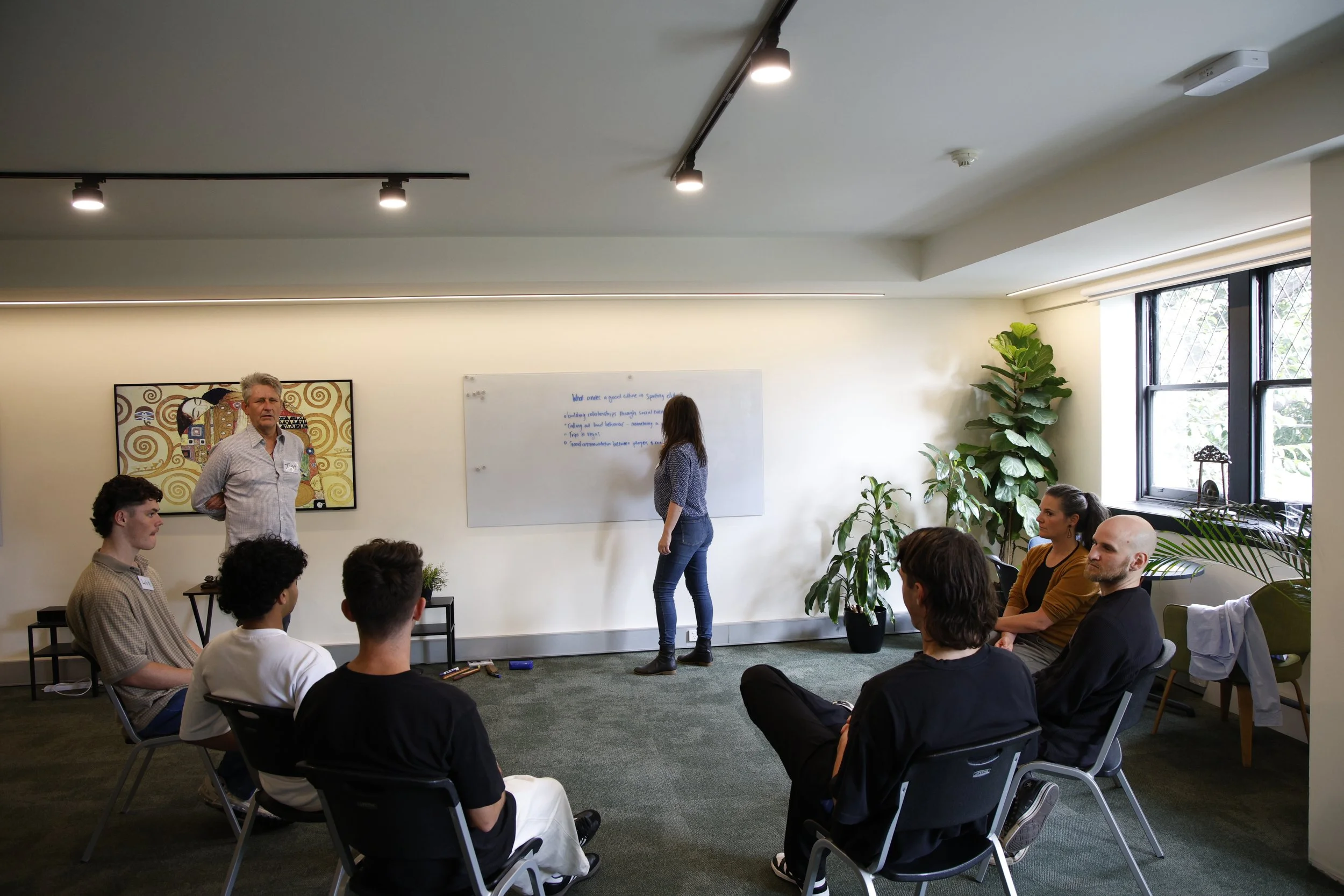The power of group agreements
By Tanya Edlington
Group Agreements are one of the foundations for any group process and just as groups aren’t all identical, our approach to making them has to be flexible and respond to the needs of the group we are facilitating.
At a recent Facilitator Practice Circle, Group Agreements was one of the hot topics that emerged from our Gather and Sort. The conversation highlighted the complexity and the simplicity of this central component of our facilitation toolkits, as well as group culture and capacity.
Group agreement-making can be one of the pressure points in pitching a workshop outline when the client – or your boss – complains that too much time is being spent on “set-up”. “Why can’t you just tell them what to do? Or better still, I’ll come in and tell them!”
Using our time wisely
There’s often a tension between the time available and what a group sets out to achieve, so it can be tricky to get through everything.
At the FPC it was great to hear the variety of ways Group Agreements are described:
“It’s the culture code for the group.”
“It’s the non-negotiables.”
“It’s a group’s behavioural agreement.”
“It’s the way we work together so we can get our work together done.”
“It’s one of the safety pillars that supports a group to work together well.”
The process is the thing
Group Agreements can be all of those things, and the process of making them is as important as having them.
When a group is given space to make an agreement about how they work together, they are creating their own safety. This can be one of the things that differentiates a participant’s experience of being trained and their experience of being facilitated.
Facilitators work with an awareness of power dynamics and seek to neutralise them rather than wielding power. It’s the difference between being told, “This is how you need to behave” and being invited with a question “What behaviours will support this group’s work?’
So where time is short (eg, in a workshop of a couple of hours) what can we do? Some facilitators shared their experience of making a suggestion to the group as a way of engaging the group in making agreements in a short time and facilitating negotiation on those as a starting point.
If we understand the principles then we can be flexible in how we live them while holding true to their purpose and role.
Just for now or forever?
The other dilemma the FPC unpacked was the situation where the purpose of the group meeting is to set up the group to work together into the future. Are two sets of agreements needed: one for the workshop and one for working together into the future? Or is the process of establishing group agreements part of what the group does for both contexts?
After exploring what had been tried by the facilitators present, the answer was: it depends.
Like many aspects of our craft, we start where it feels right, pay deep attention to the needs of the group and adapt as necessary, using our microskills in service of the group we are facilitating.
Practice Circles are the bomb
It was also a reminder about how essential ongoing professional development in a community of practice is for facilitators. This is what the FPCs are all about. We work on and practise whatever is alive for the group on the day.
You might have a question, something you want to try out or a live situation you want perspective about from other facilitators. Regardless of what we decide to do, I always feel like my facilitation practice and reconnection with core skills has refreshed and deepened.
FPCs are open to our graduates
FPCs are open to alumni who have completed the Advanced Group Facilitation course or the two-day Facilitation Skills Training. Book here or email Alumni Network Weaver Tanya Edlington if you’d like to know more: tanya@groupwork.com.au.

